The LG G5 captured our hearts at MWC with a cool modular design and a bunch of playful accessories. It was much more exciting than the boring Samsung Galaxy S7. Once the hype settled down, however, we discovered that the Galaxy S7 is a nearly perfect phone. The LG G5 has a very tough act to follow.
LG is no stranger to competition with Samsung, of course. With the G5, they’ve pulled out all the stops. Removable battery, dual-cameras, metal unibody design, Always-On display, fingerprint scanner, and more. But does LG’s plethora of features and accessories make the G5 a better device? Let’s find out.
Read More: 13 every LG G5 owner should do | 40+ LG G5 Tips & Tricks
Design & Hardware
LG took a vastly different approach to design with the G5 compared to previous models. Gone are the rear volume buttons and ergonomically curved display. The design can be summed up as a cross between the Nexus 5X and Nexus 6P. It’s not an ugly phone by any stretch, but it certainly lacks the elegance of previous models.
LG opted to coat the aluminum with a metal-infused paint to hide the antenna strips you usually find on a metal device. It is indeed made out of metal, but it doesn’t feel like it in your hand. At first, I thought the device felt like any other metal phone, but the more I’ve used it the more plasticy it feels. Some plastic phones feel greasy and cheap. The G5 doesn’t feel like that. It’s still smooth (and a little slippery) like a metal phone, but it doesn’t quite have that cold metal feel.
The cameras on the back protrude, but not as much as you’d think by looking at it. The sloping around the camera gives the illusion of a major protrusion. However, looking at it from the side shows it barely sticks out. There’s also a tiny lip around the camera to keep the lenses from touching the surface. Overall, the G5 feels nice in the hand, but it’s not as comfortable as the Galaxy S7.
Modular Design
Obviously, a big part of the G5 is the modular design. The bottom of the phone slides out like a magazine in a gun. You can switch out the battery for a fresh one, or use one of LG’s modular accessories. The idea of a modular phone is very exciting. Project Ara swept us away in dreams of future phones with swappable components. The G5 is not what we were dreaming about.
The modules are only slightly better than a case that adds functionality. The replaceable battery is the best feature here, but that’s not exactly a new concept. We love that LG is trying to do something different, and maybe in the future there will be more compelling accessories. Right now it’s just not terribly useful. We’re willing to bet most people will never even slide out the battery.
For what it is, the modular design works well. Removing the battery can be a little tricky at first, but you’ll get the hang of it. The G5 boots up quickly after you insert the battery (not as quickly as depicted in LG’s TV commercials). We didn’t have a chance to review the Cam Plus or HiFi modules, but they seemed to work great at MWC.
The modular design is going to be something you either love or completely ignore. People who take advantage of the modular accessories are going to enjoy the G5 a little more, but it’s not something you need to use to have a good experience.
Extras
Most flagship phones these days have a fingerprint scanner, but not all of them are equal. The G5 happens to have one of the best on the market. It’s very fast and very reliable. Sometimes the display will seem to unlock before your finger even touches the scanner. This is one area where the G5 outperforms the Galaxy S7 by a mile. The scanner is located on the back of the phone, which will annoy some people, but I think it’s the best spot for it.
LG has opted to embrace USB Type-C in its infancy. Early adopters will love this decision. USB Type-C is far superior to MicroUSB. You don’t have to worry about plugging the cable in the wrong way, and speeds are generally better. As with any major standard change, there will be inconveniences. The box of charging cables you’ve collected over the years are no longer compatible. If you want a spare you’re going to have to buy more.
Display
There’s not much to say about displays in modern flagship phones anymore. Spoiler alert: they all look beautiful. The G5 has a 5.3-inch LCD panel with Quad HD resolution. If you’re comparing this display to the Galaxy S7, the colors are more true-to-life and the blacks are not as deep. It’s impossible to pick LCD or AMOLED as the best. Both have their pros and cons. The decision will ultimately depend on your color reproduction preferences.
A new feature with the G5 is the “Always-on Display.” You can see the time, date, and notifications when the display is turned off. The notifications are the killer feature here. When a notification comes in you’ll see the icon appear in a large size for a few seconds and then shrink down underneath the clock. This is much more useful than the Always-on Display on the Galaxy S7, which only shows time and date. Despite being an LCD display, LG has managed to keep battery drain to a minimum with the Always-on Display enabled.
Performance & Battery
Performance on the G5 is very good. It has the same Snapdragon 820 processor and 4GB of RAM as the Galaxy S7, and it’s just as snappy (maybe even snappier). I haven’t had any issues with lag or apps freezing. The one area where you might notice some slow movement is the camera focusing. Sometimes it will take a couple of seconds for the focus to adjust. It’s not really lag. You can watch the focus slowly change.
Battery life on the G5 is pretty average. On most days I’m getting 13-14 hours with 3-4 hours of screen on time. This is with the Always-on Display enabled. It’s a struggle to make it through the day on a single charge. Unfortunately, that’s pretty common for most smartphones. Battery life is comparable to the Galaxy S7, but not nearly as good as the Samsung Galaxy S7 Edge.
The good news is you have the option to put in a fresh battery and go about the rest of your day. If you don’t have a spare battery, you can get charged quickly since the G5 has Quick Charge 3.0 technology. Obviously, better battery life would be the ideal solution.
Camera
On the back of the G5 is a brand new dual-camera setup. LG isn’t the first manufacturer to attempt such a feat, but their execution is different. The two cameras operate completely independent from one another. One is the same 16MP camera from the LG G4, while the second is an 8MP camera with a 135-degree wide angle lens.
First, let’s talk about the 16MP shooter. I was very impressed with this camera on the G4 and I’m just as impressed with it on the G5. It excels in most situations with great color and detail. For my money, the G5’s main camera is just as good as the Galaxy S7, except in one situation. Low-light is where Samsung knocks out LG.
The wide-angle camera is great fun to use. 135-degrees makes a huge difference compared to the 78-degrees of the main camera. The human eye has roughly a 200-degree horizontal viewing angle, so you’re getting much closer to what your eye can see. Photo quality is expectedly not as good as the main camera, but it’s not terrible either.
- Main
- Wide
LG’s camera software remains to be one of the best out there. The interface can be as simple or complex as you want it. No matter how you set it up, there’s always two buttons for quickly switching between the rear cameras. It’s even possible to switch the cameras in the middle of recording a video. This camera has the chops to compete with anyone.
Software
LG’s custom Android user interface is very polarizing. One decision, in particular, has been controversial. Out of the box, you won’t find an app drawer on the default launcher. This is by design. To get it back you’ll have to install the UX 4.0 Launcher through LG’s app store.
Launcher aside, the UX is pretty mild. They’ve gone with a light theme that features a lot of white, gray, and teal. Power user features from the past, such as Dual Window, have been stripped away in favor of a lighter skin. These changes have not gone unnoticed when it comes to performance. Everything moves smooth as butter.
LG has come a long way with their software. There’s nothing too crazy going on here. The removal of the app drawer is questionable, but it may actually be better for most normal people. Those that would miss the app drawer are probably already using a 3rd-party launcher. Overall, LG has shown some constraint with the UX and we’re digging it.
Conclusion
The best way I can describe the G5 is with an ice cream sundae. It has all the toppings you want, with the modular design being the cherry on top. With or without the cherry, you have a delicious treat. The cherry would make it better, but the lack of a cherry doesn’t make the rest of the sundae taste bad.
If you can find a use for the modular design, whether it’s simply replacing the battery or taking advantage of the modules, the G5 is going to be that much better of a device. But if you don’t care about that stuff, the G5 is still an excellent phone. However, there’s one more thing to consider.
Next to your ice cream sundae is a sundae made with a higher quality ice cream and fancier toppings. This sundae is called the Galaxy S7.
The G5 and Galaxy S7 are similar in many ways. However, the Galaxy S7 feels like a more premium phone. Sometimes, refinement is better than exciting new features. If you’re willing to go with a slightly bigger phone, the Galaxy S7 Edge is the clear choice. Between the G5 and Galaxy S7 I would take the latter, but it’s a close call. LG should have spent a little less time in the playground and more time in the design studio.
LG G5 Rating: star_fullstar_fullstar_fullstar_fullstar_25 (4.25 / 5)
The Good
- Great main camera
- Beautiful display
- Excellent fingerprint scanner
- Wide-angle camera is useful
- Modular design can be cool
The Bad
- Metal body doesn’t feel premium
- Battery life is average
The Bottom Line
The LG G5 is a great phone that suffers from living in the Galaxy S7’s shadow. If the modular design is something that seems useful to you, the G5 is the obvious choice. The G5 doesn’t quite live up to the hype of a modular phone, but it’s still a very solid Android device.

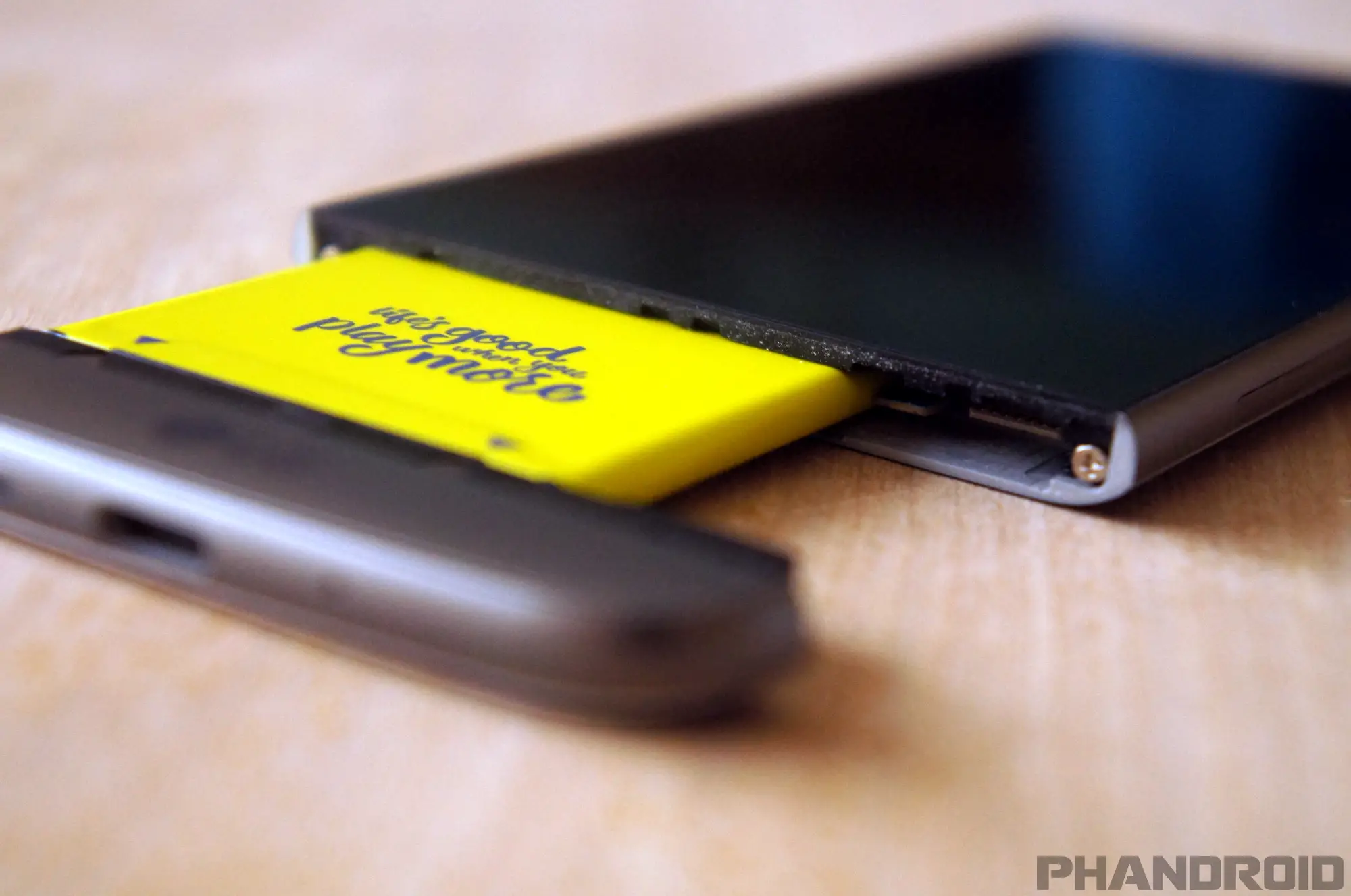

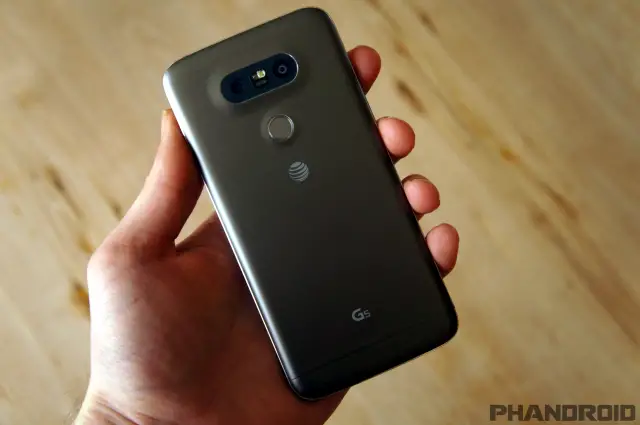
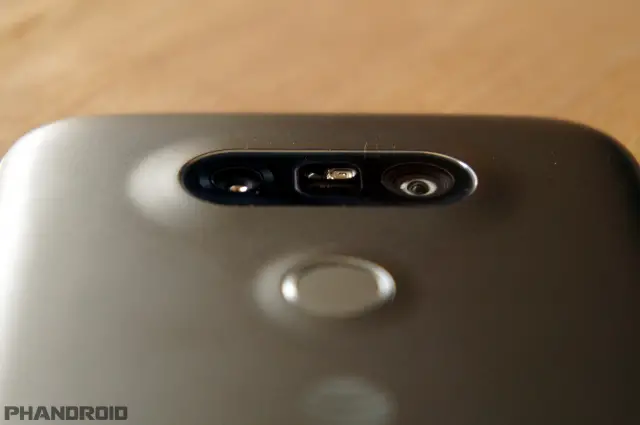
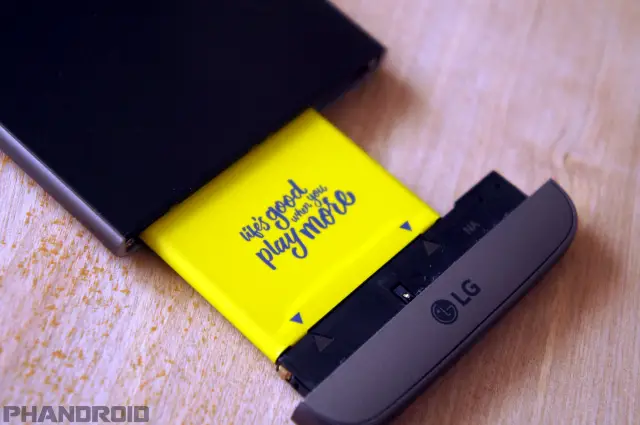
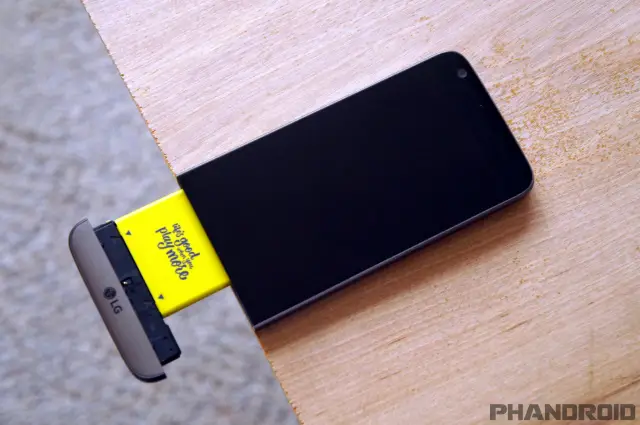
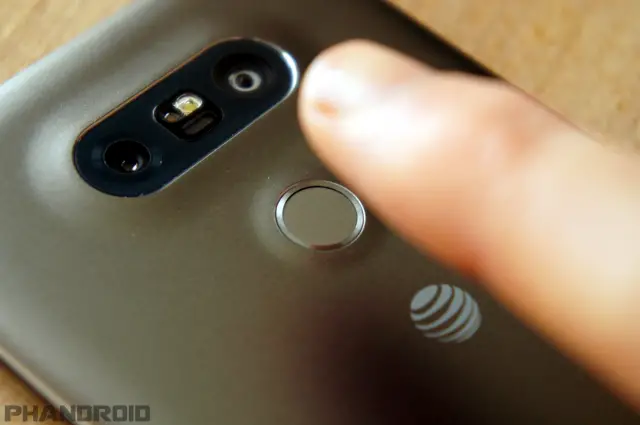
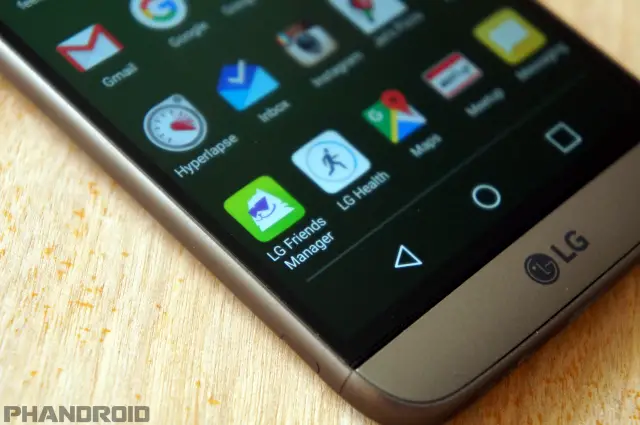

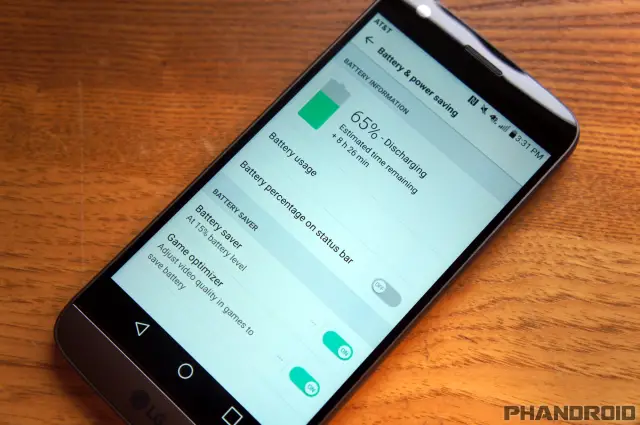
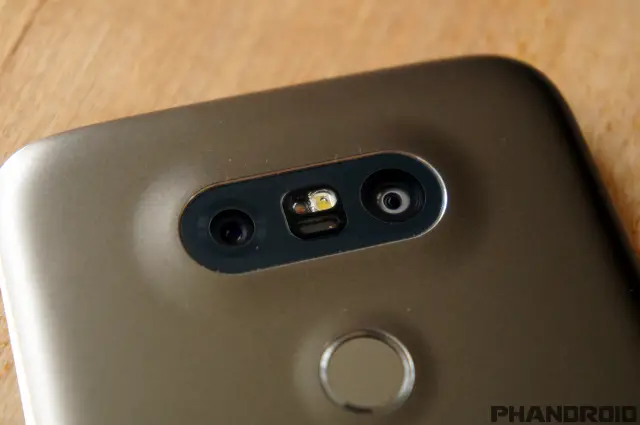








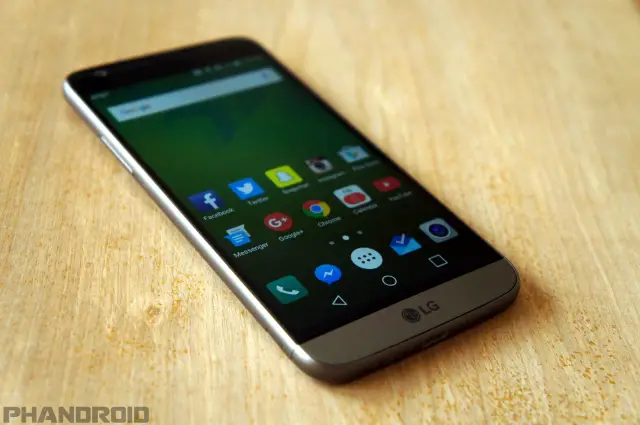
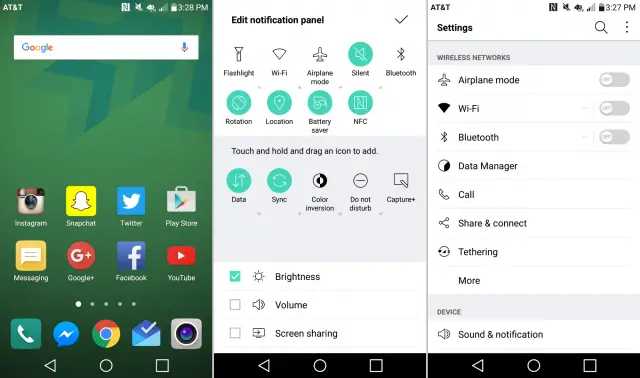

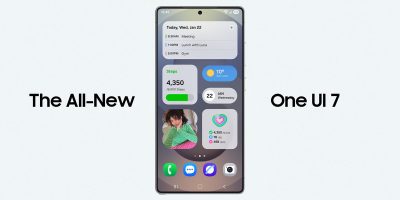




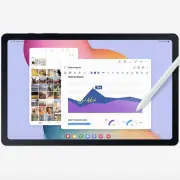
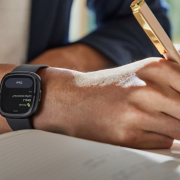

Comments